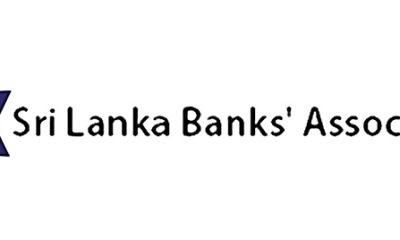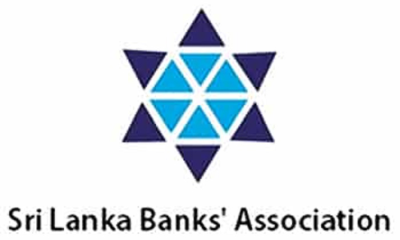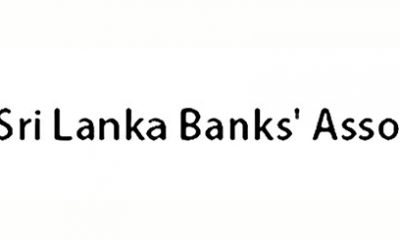News
Parate execution is the last resort to protect depositors’ funds – SLBA

Banks exercise their legally-enshrined right to Parate Execution as a last resort and the overarching objective is the protection of depositors’ funds that have been lent to borrowers, the Sri Lanka Banks Association (SLBA) has said in a statement to the media.
Responding to what it termed as lobbying by a group of defaulting borrowers espousing the removal or weakening of the protection of depositors’ funds, the Association said the Parate Execution remedy is aimed at recovering mortgaged assets from wilful defaulters and businesses that are no longer viable.
The SLBA, which represents all the licensed banks in the country, emphasized that banks have extended moratoriums on debt repayment for a long period exceeding 48 months in some cases, and that in instances of wilful default by borrowers, the banks owe a duty to their depositors’ whose funds are at risk, to recover the debts overdue and minimize the losses on loans granted.
The Association pointed out that the funds used to grant loans are placed with the banks by their depositors and that depositors are paid interest out of the interest charged from loans granted to borrowers. “Banks are responsible to manage this intermediary role in a very careful manner to avoid deterioration of depositor confidence which can lead to many negative economic consequences,” the SLBA statement said.
“When borrowers face difficulties in repayment, the lending banks review the causes for the inability to repay interest and/or capital, and assess how the situation needs to be remedied to restore the borrower to being able to repay loans and carry on business/economic activity,” the SLBA said. “In such instances it is common for the banks to exercise empathy as a “partner” and assist the borrowers to come out of their challenging financial situation, and it is common for the banks to consider extension of loans, provide moratoriums, consider interest concessions and restructure the loans to suit the future cash flows of the employment or the business.
Banks take this course as the preferred alternative to liquidating the assets of the borrower under loan security arrangements. This is because it is beneficial for the customer as well as the bank to revive a business to good financial health than to shut it down and take whatever residual value is left, which in majority of cases is less than the value of the amounts due to the bank and kills the economic activity that was being financed. The banks therefore take the option of a win-win for all and support the borrowers when they face difficulties.”
“When assessing the condition of the overdue loans and their ability to be revived, banks have to accept that certain cases are beyond revival and/or that the default is wilful and in fraud of the lender. In these limited circumstances banks as responsible financial intermediaries must necessarily invoke the remedies available under the law and this includes ‘Parate Execution’ which is a measure to protect the depositors’ funds from wilful defaulters.”
The Association explained that: “As a natural consequence of investing in a business, a businessman may encounter strains principally on his ability to repay loans that cannot be sustained by bank depositor’s funds i.e. bank financing alone. A decline in the economy as in Sri Lanka due to social and political disturbances, pandemic conditions and an overwhelming public debt burden can also cause businesses to fail.
There has been governmental and external institutional aid to tide over these difficult times but the main reliance has been on the banks that have extended moratoriums on debt repayment for a long period, exceeding 48 months in some cases. The banks provide concessions and interest waivers during these difficult times to borrowers while maintaining interest payments to depositors to maintain confidence.”
“All should acknowledge the fact that the banks, guided by the Central Bank of Sri Lanka, extended their fullest support to weather a very challenging period from the Easter Sunday attacks to the pandemic, and the economic crisis that followed.”
“Parate Execution against assets securing bank debt (depositors’ funds) is the last resort. This is when all efforts at resolution of borrower’s insolvency are met with refusal to review/negotiate, usually by malicious abuse of judicial proceedings which is a common dilatory tactic.”
“It now appears that a group of defaulting borrowers in various sectors have engaged lobbyists of varying degrees of influence to espouse the removal/weakening of the protection of depositors’ funds from wilful value destruction by owners of non-viable businesses where repayment delays are deliberate.”
“Therefore, the banks wish to state the position in relation to reliefs claimed by the borrowers and the cost to the depositors who provide the funds, if recovery actions are taken away:
* Banks are always open to have one-on-one discussions with any borrower who has faced difficulties in meeting debt obligations to have alternative options for loan repayments. This is in the best interest of all stakeholders.
* If there is no source of repayment, postponing recovery action will not solve the issue and ultimately the depositors’ funds will not be returned to the banks.
* The Parate Execution remedy is aimed at recovering mortgaged assets from wilful defaulters/businesses that are no longer viable.
* The overarching objective is to protect depositors’ funds that have been lent to wilful defaulters/ borrowers.
* Depositors’ confidence is of paramount importance for economic growth which is much needed in the Sri Lankan context.
* If Parate Rights are taken away, banks will be compelled to be extremely selective in lending and the availability of finance will be to a narrowing segment of entrepreneurs, resulting in credit to the private sector shrinking, contrary to Government and regulatory policies.
Latest News
INS Sahyadri sets sail from Colombo

The Indian Naval Ship (INS) Sahyadri which arrived at the Port of Colombo on a formal visit on 04 Apr 25, departed the island today (07 Apr). The Sri Lanka Navy bade customary farewell to the departing ship at the Port of Colombo, following naval traditions.
During the ship’s stay in Colombo, crew members of INS Sahyadri took part in several programmes organized by the Sri Lanka Navy, aimed at enhancing mutual cooperation. In addition, they also explored some tourist attractions in the country. Further, personnel of Sri Lanka Navy had the opportunity to visit INS Sahyadri, gaining insights into her operational capabilities.
Latest News
Advisory for severe lightning issued for Sabaragamuwa, Central and Uva provinces and in Hambanthota district
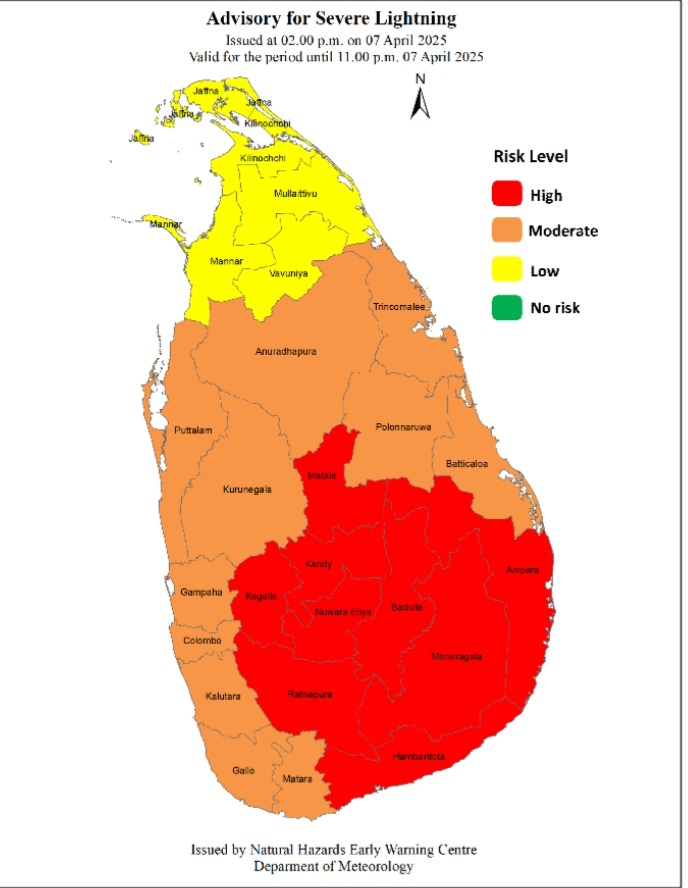
The Natural Hazards Early Warning Centre has issued an Advisory for Severe Lightning for the Sabaragamuwa, Central and Uva provinces and in Hambanthota district.
The advisory issued at 02.00 p.m. today [07 April 2025] is valid for the period until 11.00 p.m. 07 April 2025
The public are warned that thundershowers accompanied by severe lightning are likely to occur at several places in for Sabaragamuwa, Central and Uva provinces and in Hambantota district. There may be temporary localized strong winds during thundershowers. General public is kindly requested to take adequate precautions to minimize damages caused by lightning activity.
ACTION REQUIRED:
The Department of Meteorology advises that people should:
Seek shelter, preferably indoors and never under trees.
• Avoid open areas such as paddy fields, tea plantations and open water bodies during thunderstorms.
• Avoid using wired telephones and connected electric appliances during thunderstorms.
• Avoid using open vehicles, such as bicycles, tractors and boats etc.
• Beware of fallen trees and power lines.
• For emergency assistance contact the local disaster management authorities.
Latest News
“Census of Population and Housing 2024” Report Presented to the President
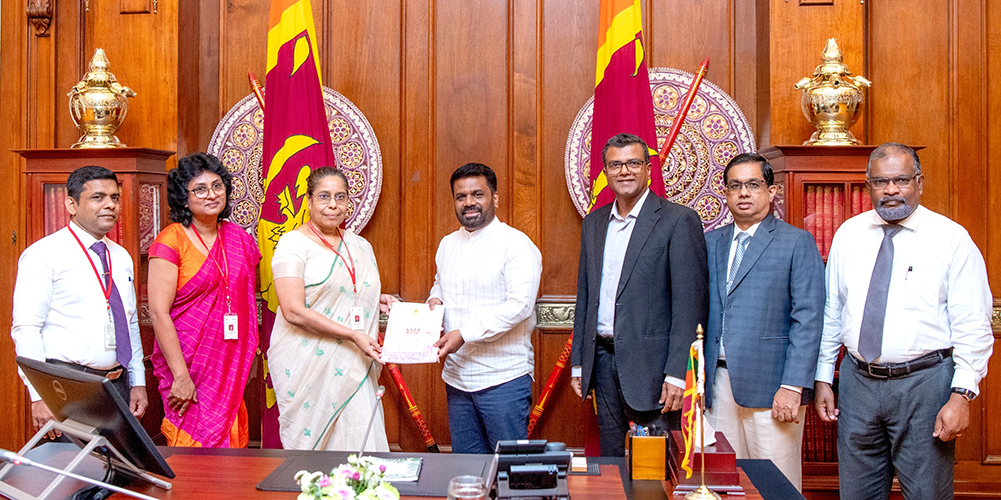
The report of the “Census of Population and Housing 2024,” conducted by the Department of Census and Statistics, was officially handed over to President Anura Kumara Disanayake this morning (07) at the Presidential Secretariat.
This preliminary report has been prepared based on island wide data collected between October and December 2024.
The report provides details on Sri Lanka’s population, its growth and the distribution of the population across districts.
The information gathered through the census is vital not only for the government but also for other institutions in formulating policies and development plans essential for the country’s progress. Significantly, for the first time in the history of census-collecting in Sri Lanka, data collection was carried out using tablet computers and user-friendly mobile devices.
The event was attended by Deputy Minister of Finance & Planning, Harshana Suriyapperuma, Secretary to the President Dr. Nandika Sanath Kumanayake, Secretary to the Ministry of Finance Mahinda Siriwardana, Director General of the Department of Census and Statistics D.D.G.A. Senevirathne and several other officials.
-

 Business18 hours ago
Business18 hours agoColombo Coffee wins coveted management awards
-

 Features2 days ago
Features2 days agoStarlink in the Global South
-

 Business3 days ago
Business3 days agoDaraz Sri Lanka ushers in the New Year with 4.4 Avurudu Wasi Pro Max – Sri Lanka’s biggest online Avurudu sale
-

 Business4 days ago
Business4 days agoStrengthening SDG integration into provincial planning and development process
-

 Business3 days ago
Business3 days agoNew SL Sovereign Bonds win foreign investor confidence
-

 Sports5 days ago
Sports5 days agoTo play or not to play is Richmond’s decision
-

 Features2 days ago
Features2 days agoModi’s Sri Lanka Sojourn
-

 Sports4 days ago
Sports4 days agoNew Zealand under 85kg rugby team set for historic tour of Sri Lanka




